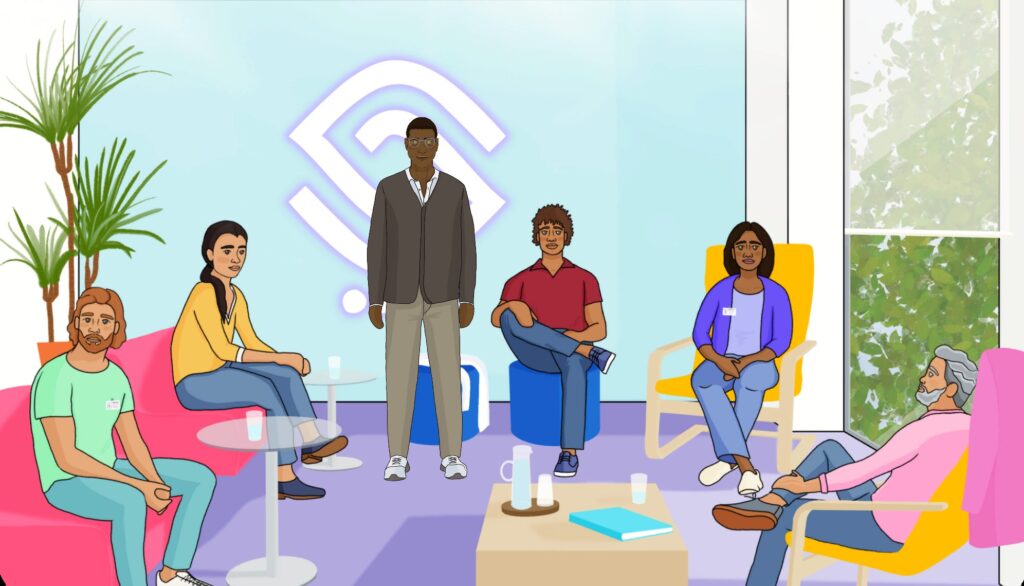Jonas Bernitt, Academy on Age-Friendly Environments in Europe BV
One of the main results of the Smart Against Ageism (SAA) project is an educational game. The content is based on real-life experiences of older adults that were collected in interviews at the beginning of the project. Through playing the game, learners should understand how ageism can be reflected in different areas of everyday life. The overall aim is to create an understanding of discriminatory situations and possible intervention strategies to actively raise awareness about age discrimination.
The content
In the story of the game, players take on the role of a diversity and inclusion manager. As such, it is their task to help the SAA Community Medical Centre resolve complaints related to age discrimination. Within the game, it is possible to explore 10 different cases of discrimination in five different areas of life. The cases are related to the job sector, the health sector, the built environment and to social everyday life. In addition, so-called advocacy cases draw attention to the possibility of seeking help and basic legal principles in connection to age discrimination.

Interactive learning within the SAA game
In all game sequences, the player’s task is to listen to statements of game characters affected by age discrimination and then give an assessment of the situation based on three questions.

After giving the answers, the player always receives feedback, which promotes reflection and a correct understanding of discriminatory situations.

In conjunction with the game, accompanying materials will be published for trainers and facilitators. In this context, it is also possible to open the game in a workshop mode to develop a learning session on specific areas in which ageism occurs. This makes the SAA materials adaptable for playful workshops in different educational environments, such as schools.
As an interactive element, the game includes a code of conduct with guidelines against age discrimination, which should guide the player’s decisions throughout the game. In addition, the game also deals with intervention strategies to familiarise learners with possible approaches to combating ageism. To ensure a fun and varied gaming experience, the SAA game also includes a selection of mini-games in which the player must, for example, develop an awareness campaign against age discrimination or review guidelines for job application processes.
Development process
The game development process is being coordinated by the project partner AFEdemy. At the beginning, a storyboard and graphical design document were created by AFEdemy and ISIS, on which the graphical and technical developments are based. In the following, the graphic design was carried out by Tatiana Semedo Simões. Since then, the technical programming has been taken care of by the project partner SHINE2Europe. Currently, the SAA game is in the first revision phase and will be tested in international workshops by January and February 2024.
Are you curious about the project results and want to find out more about ageism? Take a look at the compendium which describes the phenomenon based on interviews with affected adults in five European countries. The SAA game is expected to be available online in April 2024 in seven European languages: English, Bulgarian, Dutch, French, German, Lithuanian and Portuguese.
Stay tuned!